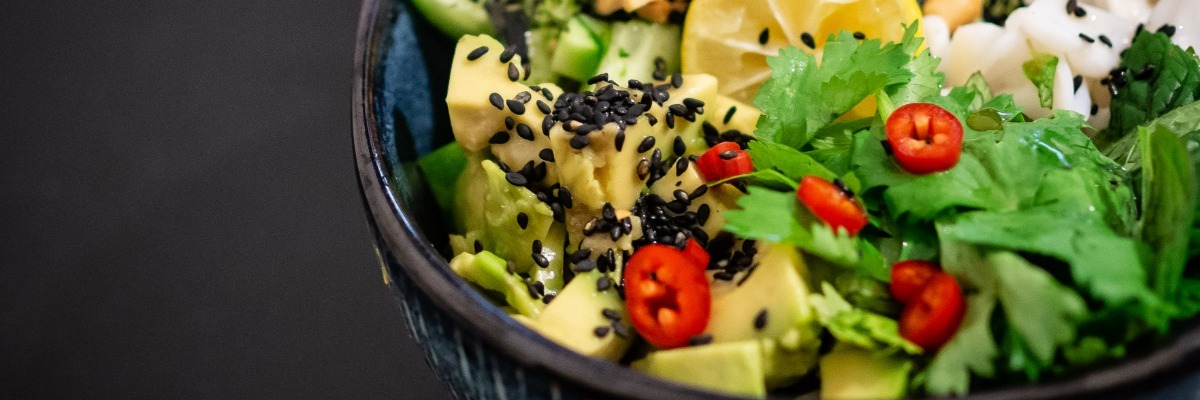6 Vitamins for Dry Eyes
It’s common knowledge that our diet can affect our health and how we feel on a day to day basis. We don’t often realise that what we eat can also affect our eyes.
Luckily, there are certain vitamins and minerals that are good for the eyes. This can be especially beneficial if you suffer from Dry Eye Syndrome, which is where your eyes feel itchy, sore, gritty, blurry or irritated on a regular basis.[1] Adding in vitamins which boost eye health to your diet, combined with a regular treatment plan, can reduce symptoms and improve your quality of life.
We’ve created a list of six vitamins and minerals that can be found in foods we eat on a regular basis, to boost your eye health and help chronic Dry Eye.
FAQs about Dry Eye and vitamins
What vitamins are best for dry eyes?
- Vitamin A
- Vitamin E
- Fish Oil
- Vitamin C
- Flaxseed Oil
- Cod Liver Oil
- Zinc
- Vitamin D
- Lutein & Zeaxanthin
Can certain vitamins cause dry eyes?
Taking too much over the counter Vitamin B3 (Niacin) can produce a rare toxin that affects vision called niacin-induced maculopathy. This can damage the eyes, however the effects are reversible if you discontinue use of the vitamin.[3] There are plenty of sources of niacin in foods to up your vitamin intake without taking over the counter vitamins. These food include chicken breast, tuna, peanuts and mushrooms.[4]
Does vitamin B12 help dry eyes?
B12 supplements have shown to improve the symptoms of dry eyes. Vitamin B12 helps to repair and preserve the corneal nerve layer, which contributes to the burning sensation you often experience with dry eye syndrome.[5]
What foods should I avoid if I have dry eyes?
Snacks that are high in sugar and sodium can contribute to dryer eyes. Sugary foods can change how oxygen and blood circulates throughout your body, which means your eyes may not produce as many tears, or your tears will have a higher level of glucose. As a result, your eyes may feel dryer than usual and you may find you have to blink more. Salty foods have a similar effect as they reduce your body’s natural water levels, so you may want to choose low-salt alternatives to snacks like salted nuts or crisps.[6]
How Do Different Vitamins Help Dry Eye Syndrome?
Vitamin A
Vitamin A aids in keeping your cornea clear, helping you to see.[2] Studies have also shown that Vitamin A may be associated with a reduced risk of cataracts and age-related macular degeneration (AMD).[3] Researchers have also found that Vitamin A can improve the smoothness of the tear film, the thin layer of fluid over the eyes, which adds more moisture to the eye and helps in the formation of tears.[7] For Dry Eye patients, these things can be helpful to protect and strengthen the eyes. Vitamin A can be found in high quantities in sweet potatoes and carrots.[8] Take your Vitamin A supplement with food as this will allow maximum absorption and make your vitamin as effective as possible.[9] Most users see a noticeable improvement within around three to six weeks.[10]
Foods high in Vitamin A:
- Liver
- Salmon
- Tuna
- Cheese
- Eggs
- Sweet potato
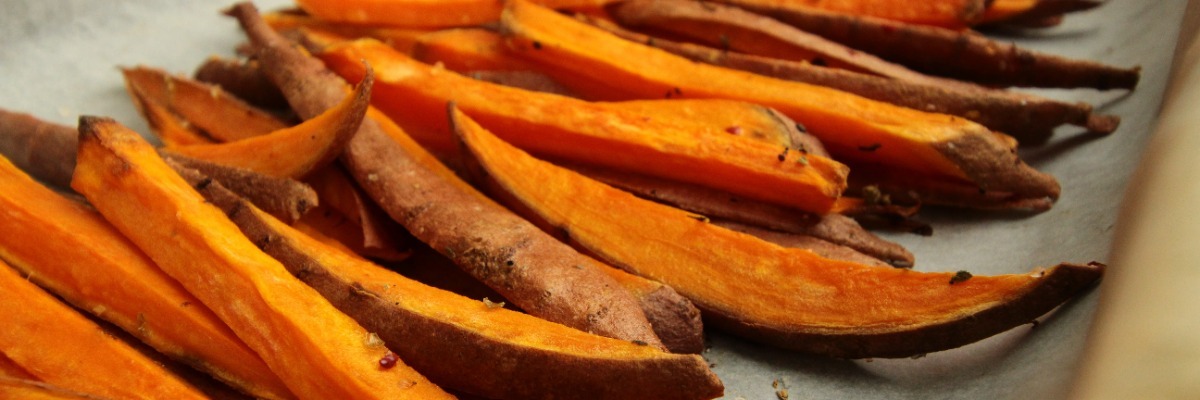
Vitamin E
Many eye conditions, including Dry Eye Syndrome, are believed to be associated with oxidative stress, which is an imbalance between antioxidants and free radicals in your body.[12] Vitamin E is an antioxidant, so it can protect eye cells from damage by free radicals, which are harmful, unstable molecules.[13] Vitamin E is also very easy to incorporate into your diet as it is present in a lot of foods. You should be able to get enough Vitamin E through your diet, as any Vitamin E that is not needed immediately is stored by your body for future use. This means that you don’t necessarily need to incorporate it into your diet every day.[14]
Foods high in Vitamin E:
- Avocado
- Nuts
- Whole wheat cereal
- Spinach
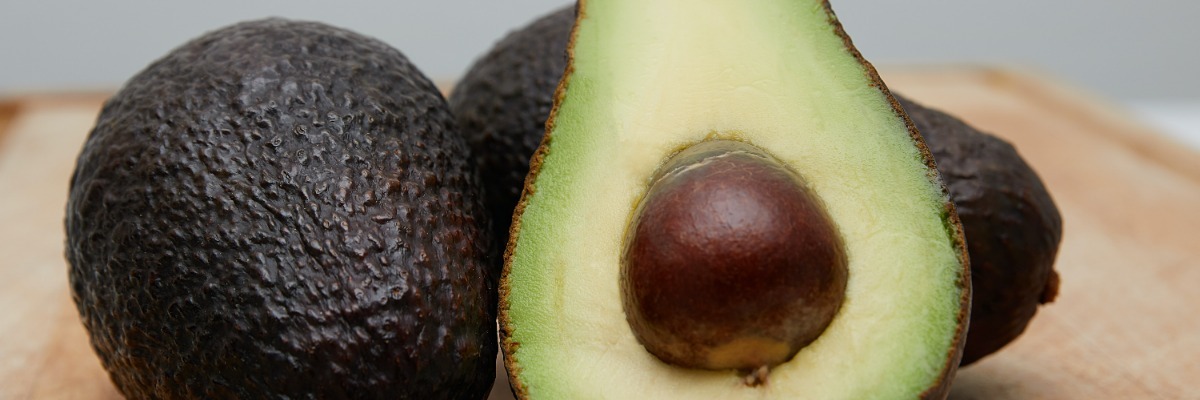
Omega 3
Omega 3 can help dry eyes, as the fatty acid has been found to help reduce inflammation in the eyes and aid in tear production, which makes it extremely beneficial for Dry Eye patients.[15] They also appear to improve the function of the eye’s meibomian glands, which produce the oily part of tears. This can aid the production of more tears and therefore help with dry eye symptoms.[16]
Foods high in Omega-3:
- Salmon
- Tuna
- Mackerel
- Walnuts
- Flax Seeds
- Chia Seeds
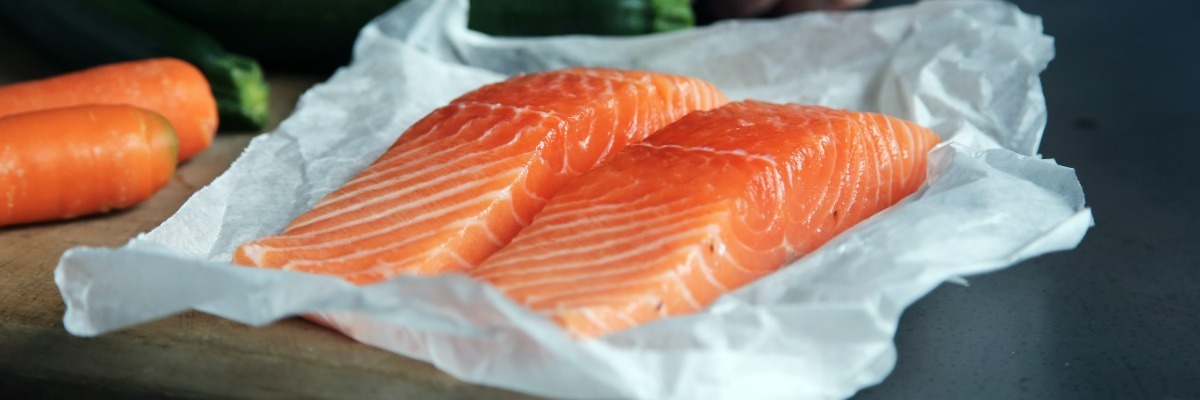
Vitamin C
Vitamin C is an important part of any diet.[18] Like Vitamin E, it is an antioxidant, which makes it beneficial for eye health.[13] Vitamin C can reduce inflammation and oxidative stress levels and therefore lower the development of eye problems.[19] It is also a building block which helps the body create collagen, a protein that provides structure to the eyes.[20] As well as increasing your Vitamin C intake, you can also take collagen supplements for dry eyes to further aid collagen production in your body.[21] Unlike Vitamin E, Vitamin C cannot be stored in your body so it is best to include it in your diet every day.[18]
Foods high in Vitamin C:
- Citrus Fruits
- Peppers
- Strawberries
- Blackberries
- Broccoli
- Brussel Sprouts
- Potatoes
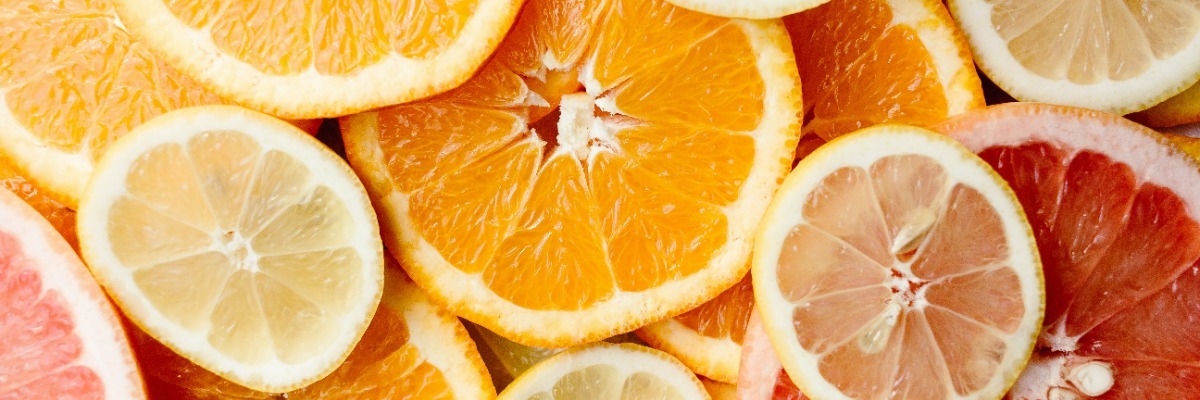
Riboflavin
Riboflavin, or Vitamin B2, is also an antioxidant that can help eye health. It can help prevent cataracts, which is damage to the lens of the eye and can cause cloudy vision.[22] Health authorities recommend consuming 1.1–1.3 mg of riboflavin per day.[13] It’s usually easy to achieve this amount, as many foods are high in riboflavin.
Foods high in Riboflavin:
- Almonds
- Whole Grains
- Wild Rice
- Mushrooms
- Soybeans
- Milk
- Yogurt
- Eggs
- Broccoli
- Brussel Sprouts
- Spinach
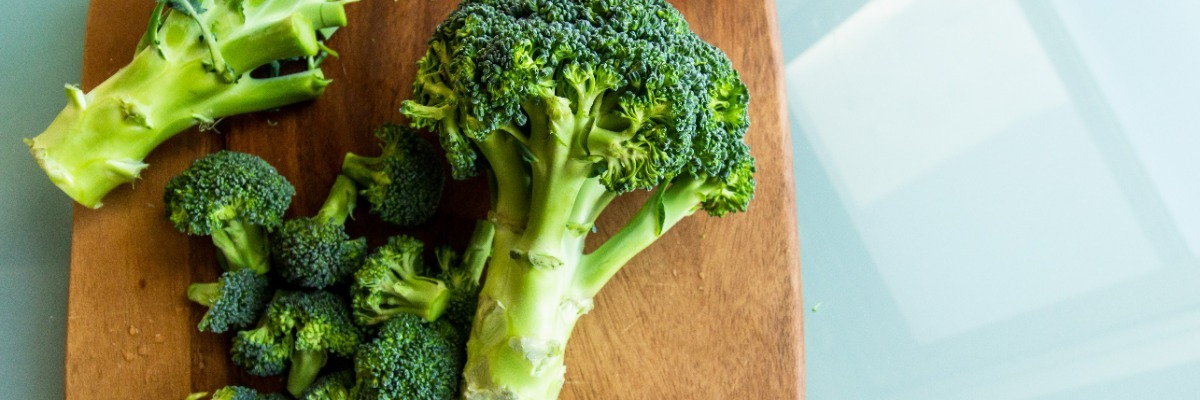
Vitamin D
Last but not least, research has found that Vitamin D might play a role in protecting against the development of dry eyes by improving factors linked to the coating of tears that cover the front of the eye. It may also help reduce inflammation on the surface of the eye.[23] The most obvious source of Vitamin D is sunlight, but there are a number of food options that are also good sources.[24]
Foods high in Vitamin D:
- Sardines
- Salmon
- Herring
- Mackerel
- Red Meat
- Liver
- Egg Yolk
- Fortified Foods
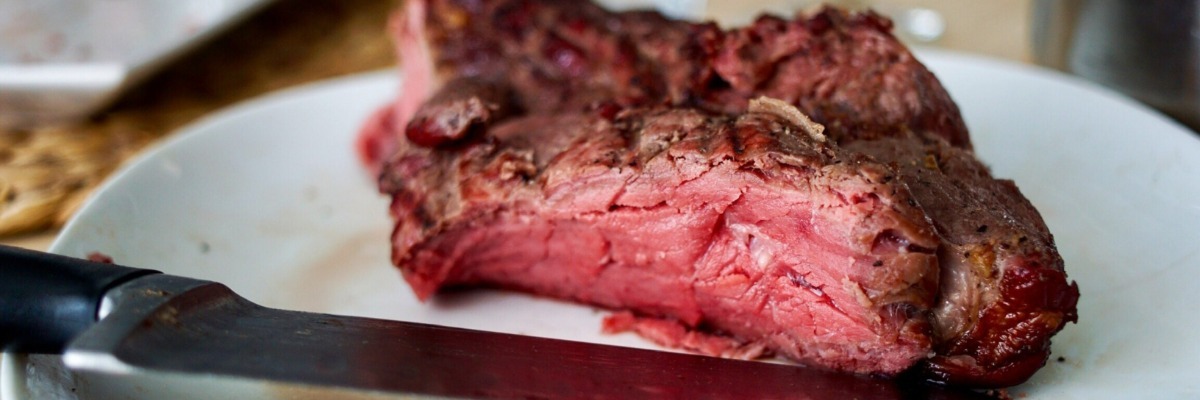
It is important to consume all of these vitamins as part of a healthy balanced diet, and whilst they may help ease Dry Eye Symptoms, they are not a cure and should be adopted along with a treatment plan that is discussed with a medical practitioner.
In most cases, the best way to treat dry eyes, Also known as dry eye syndrome, is to use eye gel or eye drops.
VisuXL Gel® is a preservative-free smart gel lubricant for dry eye syndrome. It provides comfort in a bottle with it’s long-lasting lubrication properties giving 12-hour dosing with just one drop and is suitable for both day and night use.
VisuXL® is a preservative-free eye drop lubricant for dry eye syndrome. Due to its unique ingredients, VisuXL® will help you recover from eye surgery, an injury or persistent damaging dry eye.
VisuEvo® is a preservative-free eye drop that prevents excessive evaporation of the tear film. Its unique formula contains omega-3 essential fatty acids, Vitamins A and D and ultra-filtered phospholipids that facilitate tear film presentation and control evaporation.
All three products are contact lens-friendly and can be used for 180 days after opening.
Shop now
References
- NHS England, ‘Dry Eyes’. Accessed Jan 2022.
- Capogna, Laurie, ‘The Best Supplements for Dry Eye’, Eye Wellness, 13/07/21, Accessed June 2022
- Mount Sinai, ‘Eye Damage Linked to Popular Over-the-Counter Vitamin That Lowers Cholesterol Can Be Reversed’, 29/10/19, Accessed June 2022
- Julson, Erica, ‘16 Foods That Are High in Niacin’, Healthline, 05/10/21, Accessed June 2022
- Gilbert Eyecare, ‘Should I Take Vitamins If I Have Dry Eye Syndrome?’, Accessed June 2022
- Campaign Eye Professionals, ‘Can Diet Cause Dry Eyes?’, 06/09/21, Accessed June 2022.
- Nunez, Kirsten. ‘Vitamins and Supplements for Dry Eye Syndrome’, Healthline, 25/03/21, Accessed June 2022.
- Vimont, Ceila. ‘36 Fabulous Foods to Boost Eye Health’, American Academy of Opthamology, 10/01/20, Accessed Jan 2022.
- MedicineNet, ‘Is It Better To Take Vitamins In The Morning or Night?’, 29/11/21, Accessed June 2022.
- Doctor Seaweed, ‘How long does it take for supplements to work?’, Accessed June 2022
- Arnarson, Atli. ‘20 Foods That Are High in Vitamin A’, Healthline, 19/04/17
- Dogru, Morat, Kojima, Takashi, Simsek, Cem, Tsubota, Kazuo, ‘Potential Role of Oxidative Stress in Ocular Surface Inflammation and Dry Eye Disease’, Investigative Ophthalmology & Visual Science, November 2018, Vol.59, DES163-DES168.
- Meixner, Makayla, ‘The 9 Most Important Vitamins for Eye Health’, Healthline, 25/07/18, Accessed Jan 2022.
- NHS England, ‘Vitamins and Minerals – Vitamin E’, Accessed June 2022
- Periman, Laura, ‘Studying the role of omegas in dry eye disease: Beyond the DREAM’, Opthamology Times, July 2018, Accessed Sep 2021
- Vimont, Ceila. ‘The Benefits of Fish Oil for Dry Eye’, American Academy of Opthamology, 15/10/20, Accessed June 2022
- Pearson, Sonia. ‘Should you use fish oil for dry eyes?’, Healthline, 06/07/20, Accessed June 2022
- NHS England, ‘Vitamin C’, Accessed June 2022.
- PerformanceLab, ‘ Vitamin C and Dry Eyes’, 13/01/21, Accessed June 2022
- Meek, K, M, Fullwood, N, J, ‘Corneal and Scleral Collagens–A Microscopist’s Perspective’, Micron., 2001 Apr;32(3):261-72. doi: 10.1016/s0968-4328(00)00041-x.
- Rosenberg, Mark. ‘Save Your Eyes With Collagen’, FoodTrients, Accessed June 2022
- St.Lukes Hospital, ‘Vitamin B2 (Riboflavin)’, Accessed June 2022
- Yildirim, Pelin, Garip, Yesim, Karci, Ayse Aslihan, Guler, Tuba, ‘Dry Eye in Vitamin D Deficiency: More Than An Incidental Association’, International Journal of Rheumatic Diseases, Vol 19:1, Jan 2017, pp.49-54.
- Hill, Ansley, ‘7 Effective Ways to Increase Your Vitamin D Levels’, Healthline, 17/03/19, Accessed Jan 2020.
- NHS England, ‘Vitamin D’, Accessed June 2022


